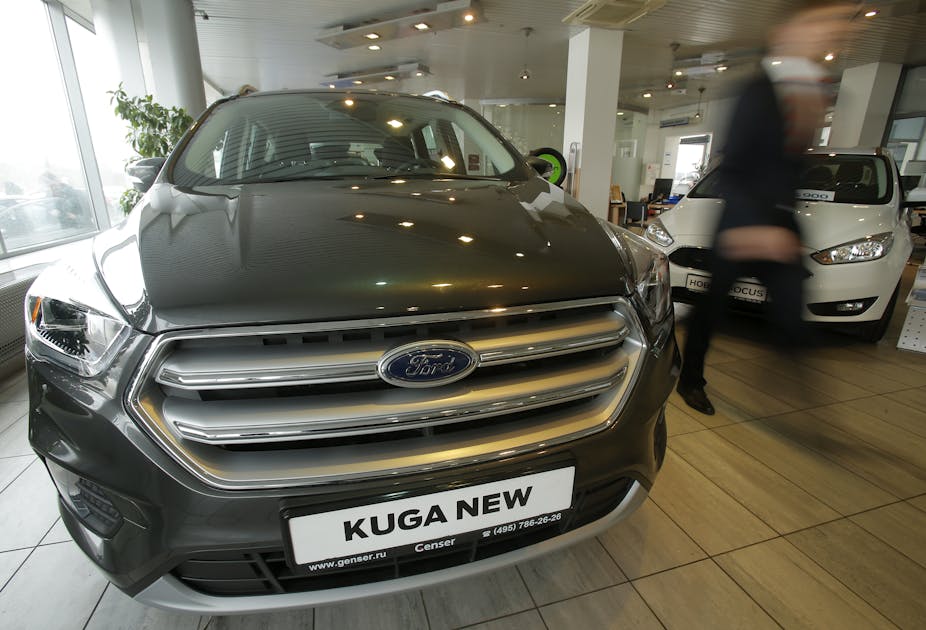There can be no doubt that the Ford Kuga brand in South Africa is in trouble following the model’s propensity to burst into flames. Ford South Africa has not helped the situation with its lethargic reaction to what’s now a major crisis.
Some considerable damage has been done but Ford South African can still make amends. It will need to move with lighting speed because the window of opportunity to fix the public relations disaster, won’t stay open for long.
After more than a year of largely avoiding the issue Ford South Africa was finally compelled to announce a recall of more than 4000 Kuga 1.6-litre models in January 2017. This came after 51 Kugas burst into flames in South Africa as well as a couple in neighbouring countries. One person lost his life.
It didn’t help that the recall only came after the company was put under pressure by the National Consumer Commission. Up until that point Ford South Africa had failed to produce a satisfactory response and was facing increasing criticism.
The company’s reputation has suffered and its brand is reeling. While it’s too soon to calculate the financial cost, one thing is certain; it’s not too late for Ford South Africa to embark on a massive PR campaign to rebuild trust with consumers and mitigate the damage done to its image.
Consumers are forgiving
Consumers are remarkably forgiving. Take the example of Volkswagen. In 2016 the German car giant suffered a major blow to its reputation when the company was found to be cheating in emission tests. Volkswagen was found to have made its cars appear more environmentally friendly than they were. The defect affected 11 million cars worldwide.
Yet a year later it had bounced back to regain its position as the world’s biggest car manufacturer, selling more vehicles than Toyota in 2016.
Volkswagen had to deal with car recalls, fines prosecutions and settlements. But it was still able to record an overall 3.8% rise in vehicle sales.
Over the years, there have been many products tainted by scandal and worldwide recall. Yet companies have managed the crises, sometimes emerging stronger.
The most celebrated case is multinational Johnson & Johnson.
How Johnson & Johnson did it
The company spent millions of dollars recalling the painkilling medication Tylenol http://time.com/3423136/tylenol-deaths-1982/ in the US in 1982 after seven people died following cases of potassium cyanide poisoning. It was revealed that the pills had been tampered with and new tamper proof holders had to be made for the medication. The company destroyed 31 million capsules valued at $100 million.
The way in which Johnson & Johnson dealt with the Tylenol crisis is one of the most widely taught case studies of effective crises management.
The reasons are quite simple: Johnson & Johnson acted swiftly and decisively, turning its crisis into an opportunity. The company chairman appeared in commercials and did more than 50 interviews. When the new packaging for the medication had been designed he held a press conference to introduce it.
But the crisis plan Johnson & Johnson’s put into action is widely believed to have saved the day. Tylenol’s market share went up from 33% before the crisis to 48% days after the relaunch of the medication.
Ford could follow in Johnson & Johnson’s footsteps with an action plan designed along the same lines.
Ford needs to launch their own crisis plan
The main action points would be the following.
It’s imperative that the company puts together some kind of war room or operational team to drive a public relations strategy around the Ford Kuga incidents. They need a marketing plan – not to sell more cars, but to restore consumer confidence. They need to appear to be open and honest and more concerned about customers than about the legal implications of the situation. Customer needs should be foregrounded.
Top of their action plan should be the hiring or seconding of a dedicated person to run a nationwide campaign and interact with the public. In addition, they should consider setting up a hotline where people can call in with their concerns and where customers can air their grievances rather than turning to public grievance platforms like hello peter.
Ford has provided a customer service number that people can call for information and assistance. But the goodwill of this has been offset by some Ford dealers refusing to help customers as instructed. The company needs to consider setting up dedicated centres where consumers can go with their cars for help and advice.
But it needs to act quickly. The window of opportunity is closing and it’s operating in a difficult economic environment. The latest car sales figures show a 15.3% year-on-year drop in new car sales in South Africa and 2017 is also expected to be tough.
Ford cannot afford to let its reputation be tarnished any further. It’s time to stop the Ford Kuga bleed and to make the most of the small window of opportunity for Ford South Africa to repair its name and reputation.

